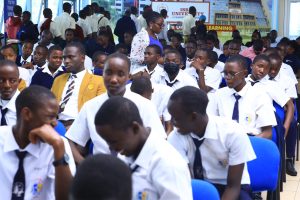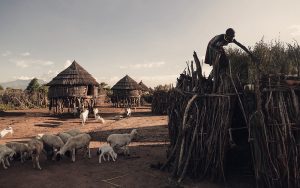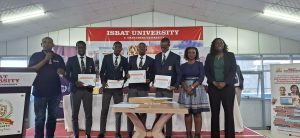Connectivity, Innovation, and Collaboration: Airtel Uganda MD Mr. Soumendra Sahu Inspires a Digital Future at NCC 2025
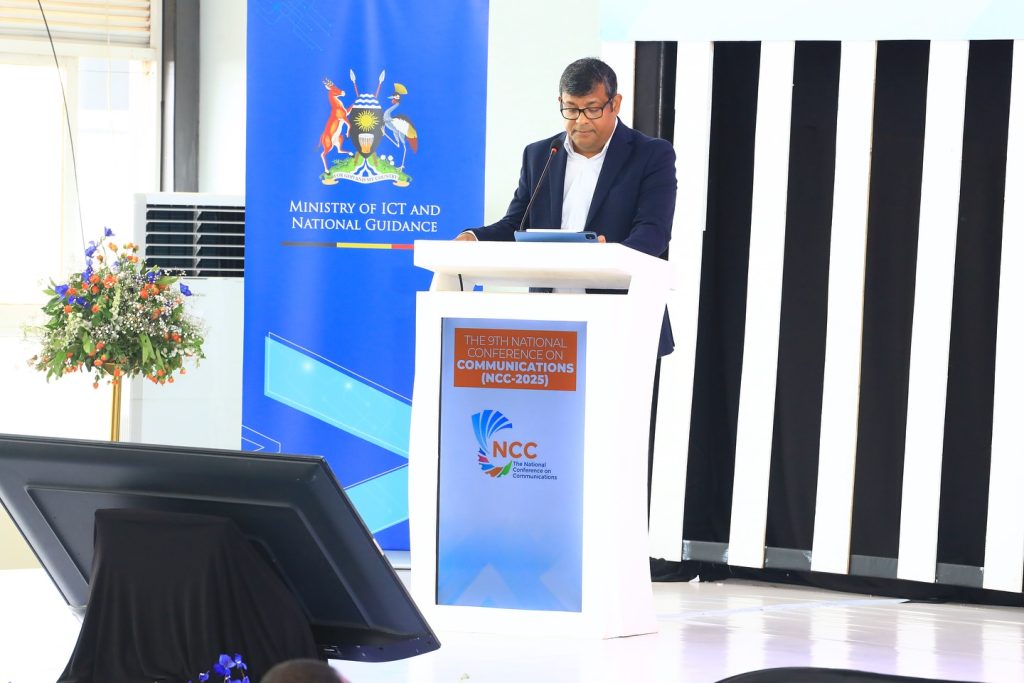
On Day 2 of the 9th National Conference on Communications (NCC 2025), Mr. Soumendra Sahu, the Managing Director of Airtel Uganda, delivered a compelling keynote address that captured the essence of Uganda’s digital transformation journey. Speaking at the National ICT Innovation Hub in Nakawa, Mr. Sahu outlined how connectivity, innovation, and collaboration form the three powerful forces that will drive Uganda’s transition into a fully digital economy.
The NCC 2025, organized by the Uganda Communications Commission (UCC) in collaboration with ISBAT University, Gulu University, and KAWA Uganda, is built around the theme: “Harnessing Digital Innovation to Power Sustainable Local Solutions for Uganda’s Development Goals.” Mr. Sahu’s message aligned perfectly with this theme, illustrating how private sector players like Airtel are not just participants but key enablers of the country’s digital revolution.
The Promise of a Digital Uganda
Mr. Sahu began by inviting the audience to visualize a connected, inclusive Uganda where digital technology transforms lives and opportunities. He painted vivid pictures of possibility:
- A farmer in remote northern Uganda checking real-time market prices before selling produce.
- A student in Kabale attending virtual lectures without leaving home.
- A young woman in Mbale running a global business from her garage.
“These are not distant dreams,” he said. “These are realities that digital innovation can unlock for every Ugandan.”
He emphasized that the promise of Digital Uganda lies not in technology alone, but in the human capacity to leverage digital tools for productivity, inclusion, and creativity. However, he cautioned that progress would only be realized when three key elements — connectivity, innovation, and collaboration — come together in harmony.
Airtel Uganda’s Role: Building the Highways of the Digital Economy
Describing Airtel’s journey as a “partner in Uganda’s national transformation,” Mr. Sahu shared how the telecom giant has been investing heavily in infrastructure and accessibility to ensure no Ugandan is left behind.
In the last year alone, Airtel Uganda achieved 100% 4G coverage across the country, began rolling out 5G technology, and laid over 1,800 kilometers of fiber network, connecting even the most remote communities. “Our mission is simple,” he explained. “We are building the highways of the digital economy.”
Yet, he acknowledged that connectivity alone is not enough. To make the digital revolution truly inclusive, Airtel has partnered with device manufacturers and retailers to make smartphones affordable and accessible. He noted that data usage on Airtel’s network has grown by nearly 60%, proving that when people are empowered with access, they respond with creativity and enterprise.
“Connectivity is the beginning, not the end,” he said. “When you empower people with access, they respond with innovation.”
Homegrown Innovations: Enhancing Experience and Security
Mr. Sahu proudly highlighted two major technological innovations that Airtel Uganda recently launched to improve customer experience and safety.
The first, Voice over LTE (VoLTE), ensures seamless voice and data usage simultaneously — a feature that allows users to make high-definition calls while browsing or streaming without interruption. “With VoLTE,” he said, “Ugandans can enjoy crystal-clear voice calls and uninterrupted internet sessions. It’s a small innovation, but it makes a big difference.”
The second is Africa’s first AI-powered Spam Alert Service, launched by Airtel Uganda to protect users from fraudulent messages and spam. Using a blend of artificial intelligence and network intelligence, the system analyzes over 250 parameters to detect potentially harmful SMS content. Mr. Sahu emphasized that the service is completely free for users, describing it as part of Airtel’s commitment to customer safety and digital trust.
“Digital growth must go hand-in-hand with digital security,” he noted. “Our spam alert innovation ensures that Ugandans can engage online confidently and safely.”
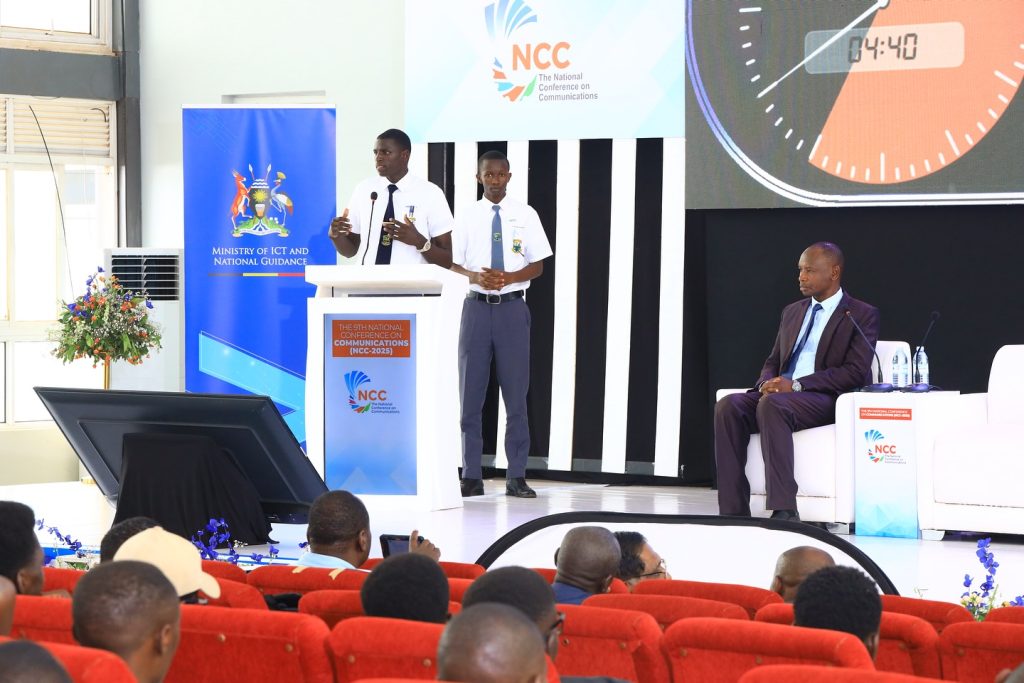
A Call to Uganda’s Young Innovators
Perhaps the most powerful moment of Mr. Sahu’s speech came when he turned his message directly to the youth — the innovators, students, and creators in the audience. He challenged them to use the internet not merely as consumers, but as creators and problem solvers.
“Uganda’s challenges in health, agriculture, education, and commerce are real — but so is your ability to solve them,” he declared. “Every megabyte you use, every connection you make, is an opportunity to design something that transforms communities.”
He urged students and developers to experiment, collaborate, and reimagine what is possible through digital tools. “Use the internet for creation,” he said. “Use it to shape the future of this country.”
Collaboration and Youth Empowerment
Mr. Sahu emphasized that Airtel’s innovation journey is not a solo effort but a collaborative mission that welcomes ideas from customers, students, and local innovators. Responding to a question from a telecommunications engineering student from St. Lawrence University, he encouraged direct engagement:
“Innovation doesn’t have to be a miracle,” he said. “If you have an idea that can improve lives or enhance connectivity, we want to hear from you.”
He invited innovators to reach out through Airtel’s social media platforms — including X (Twitter), Instagram, and TikTok — or even propose a dedicated innovation submission portal on the company’s website.
To strengthen its collaboration with the education sector, Mr. Sahu announced Airtel’s ongoing programs such as Tech for Her, which sponsors women pursuing technology studies, and an annual sponsorship for ten African students (including Ugandans) to attend IIT Madras in India.
He also revealed plans for university hackathons — intensive innovation camps designed to bring students and Airtel engineers together to brainstorm, build, and showcase impactful digital solutions.
“We want to create spaces where young Ugandans can innovate fearlessly,” he said. “We will host hackathons that celebrate creativity and reward the best ideas with opportunities to grow.”
Digital Innovation as a Human Story
Closing his keynote, Mr. Sahu reminded the audience that digital innovation is not just about technology — it is fundamentally about people. “It’s about unlocking human potential,” he said. “It’s about ensuring that every Ugandan, whether in a city or a distant village, has a reason to imagine — and the tools to realize that imagination.”
His words captured the spirit of NCC 2025: a call for shared responsibility in building a digitally empowered, inclusive Uganda, where every innovation — no matter how small — contributes to national transformation.
🎥 Watch the full keynote here:

